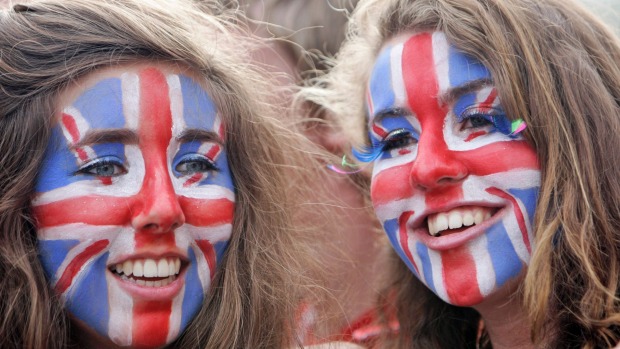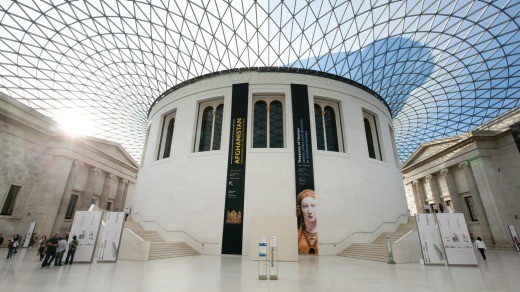
Going to the UK for the first time? Here are 20 things that might surprise you when you visit Ol' Blighty.
Hotels may be pricy, but sightseeing can often be deliciously cheap. Most state and council-owned museums are free to enter – and this includes the likes of the British Museum, Science Museum and Natural History Museum in London amongst many more obscure oddities.
The classic Aussie complaint about British beer is its temperature. And when it comes to lager, Australia is correct – it shouldn't be served warm. But good, hand-pulled ales taste better at room temperature. If the lager is warm, or the ales horrible, you're in a bad pub – of which there are more than reputation suggests.

A handy rule of thumb on pubs is that if there aren't at least two more beers on tap than the usual selection – which comes from a pool of Guinness, Tetley, Carling, John Smiths, Fosters, Carlsberg, Becks Vier, Kronenbourg, Boddingtons, Stella and Heineken – go somewhere else.
Talking of pubs, it's pretty much impossible to avoid the Wetherspoon's chain. Often in distinctive historic buildings but somehow managing to look and feel identical, they have no music and soul-sapping spirit. But they also serve an admirable range of drinks on the cheap, so yin and yang…
Wetherspoon's, but with greasy pastries that are hotter than the sun upon first bite. By unwritten law, there are at least five outlets on each street. Everyone knows they're awful, deep down, but people get inexplicably defensive if an outsider criticises Gregg's.
The UK has the best free-to-air TV in the world, but don't expect it to be wall-to-wall Wolf Hall and Doctor Who. Australia tends to get the best UK exports, skewing perceptions of the overall quality. But anyone who prefers Australia's mediocre filler to the UK's has serious quality control issues.
One tap for hot water, and one tap for cold. It's the British way, and no amount of aggrieved shrieking about the concept of mixer taps looks likely to change this.
The great British countryside is often not as scenic as stereotypes would suggest. Famous areas such as the Cotswolds, Yorkshire Dales and the Peak District are nice enough, but the character comes from the villages rather than the landscape. For atmospherics and stark wow factor, the North York Moors, Scottish Highlands and Northumberland coast are a better bet.
Also majorly overrated are medium-sized market towns. Most have interchangeable high streets and are hotbeds of mindless parochiality. Oh, and the markets usually just sell poorly-made clothes, mobile phone covers and produce that's no better than that on sale in supermarkets.
The Australian (and US model) of city-based newspapers, with one more right-wing populist, the other leaning more left and wordy, doesn't apply. The main papers (in England at least) are national, and fit carefully plotted spots on the spectrum. Which you pick can reveal a fair bit about your character.
The tube is remarkably efficient, but somehow it always takes longer than expected to get from A to B. Walking between lines in the same station, waiting for the second train and spending five minutes disorientated upon exit add up. Always budget an hour if changing lines is required, and 90 minutes if heading significantly out of Zone One.
You no longer need to queue to buy tickets or Oyster cards for the Tube. If you've got a contactless credit card, you can simply tap in and out with that, and the correct fare will be automatically billed.
Train tickets in the UK can be much cheaper than their reputation suggests – but only when bought in advance and for travel outside of peak commuter periods. Research and plot ahead via Nationalrail.co.uk or face jaw-dropping walk-up prices. This is particularly galling on weekends and public holidays, when the whole network can go to pieces for repair work, and achingly slow 'rail replacement buses' take the place of the trains. With no discount.
So is hiring a car a better bet then? If you're planning to stick to the countryside, then certainly, but in urban areas, a car is a massive liability. A network of towns and cities born before the advent of the car, tiddly narrow spaces in multi-storey car parks and inevitably choked ring-roads don't to endear themselves to visiting drivers.
Scottish and Northern Irish banks issue their own notes, which are perfectly legal tender, but inevitably invoke suspicion in English and Welsh shops. Be prepared to stand your ground, and expect a severe struggle to exchange them outside of the UK…
Perhaps more than anywhere else, the UK has an inexplicable love of pre-packed sandwiches. It's not just convenience stores that sell them – you'll find them in newsagents', pharmacies and supermarkets too. Freshly-made sandwiches seem to be regarded as pushing the boat out a bit.
Sandwiches aside, food in the UK has come on leaps and bounds in the last couple of decades. Whisper it, but quality is often is at least as good as in the more fabled France or Italy, while the globe-spanning variety makes eating out far more interesting than in most of Europe.
Whereas in Australia a cheap Thai is usually reliable and good Indian food can be hard to find, it's the other way round in the UK. But many of the classic dishes – especially Balti and chicken tikka masala were invented in the UK. Oh, and most 'Indian' restaurants are actually Pakistani or Bangladeshi.
While Australia concentrates on big cities, the UK is a country made up of a patchwork of large towns and smaller cities. And each one has an irrational hatred of another one, largely based around football. Some rivalries – Liverpool vs Manchester and Glasgow vs Edinburgh are well known. Others, such as Portsmouth vs Southampton, Ipswich vs Norwich or Nottingham vs Derby may come as a befuddling surprise.
This collection of hundreds of distinct local identities often shows in the accent – which can undergo a complete change within the space of 50km. Only a select few of them tend to make it overseas in TV and films, although credit is due to Littlefinger in Game Of Thrones for attempting to run through every single one of them within a single episode. In short, expect to think: "What?" quite a lot.
Despite a football-mad reputation, many Brits only have a slight interest in the sport. But British men, in particular, learn to be able to bluff about football from a very early age, even if only for the purposes of default pub conversation. Just because someone is talking football doesn't mean they really want to be.
See also: How a rural English village became a foodie mecca